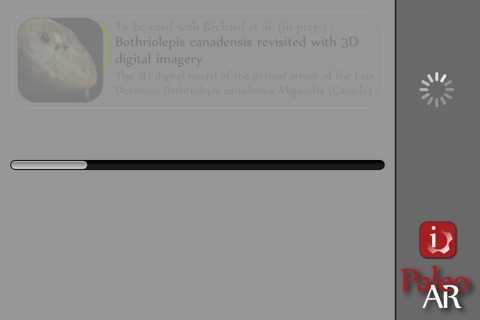
PaleoAR app for iPhone and iPad
PaleoAR uses augmented reality (AR) technology to enhance knowledge sharing experience in paleontology. The app enables you to view or interact with a 3D model, a video or a high resolution image. Thereby, it permits to exceed the limits of printing to enhance scientific publications.
Augmented reality is the superposition of 2D or 3D virtual elements in a real-time image seen through the camera of a mobile device. In this app, augmented reality is useful to deepen the studied subjects and their interpretation.
This app is devoted for the publications coming from Dr. Richard Cloutier’s Evolutionary Biology Laboratory of the Université du Québec à Rimouski.
The app was developed by the Université du Québec à Rimouski, the Cégep de Matane and the Centre de développement et de recherche en imagerie numérique (CDRIN).
Features:
• Viewing 3D models of fossil species with augmented reality
• Viewing high-resolution images and illustrative videos
• Offline browsing once the publication is loaded
• Auto-update (threw an Internet connection)
To explore the augmented content of a publication, choose a publication in the main menu. Publication can be either a printed article, a scientific poster or a visual presentation (talk). Point the identified figures within the publications threw your mobile device camera to access augmented content. The functionalities of the app will self adjust depending on the content presented.
The common touch gestures such as one or two finger drag or pinch and turn with two fingers will allow you to use the app and explore its contents.
The first version of this app presents one of the fossil species from the Parc national de Miguasha: the Devonian placoderm Bothriolepis canadensis. You will be able to interact with a 3D model of the dermal armor of the fish and also view a descriptive animation of the pectoral fin movements.



